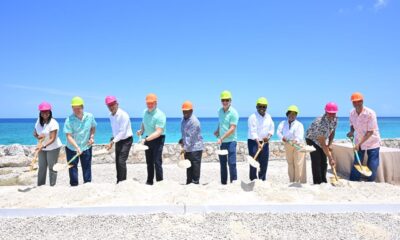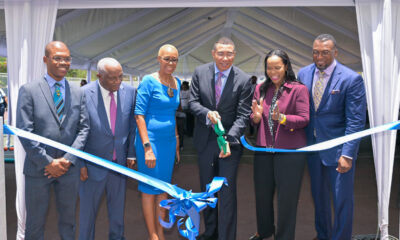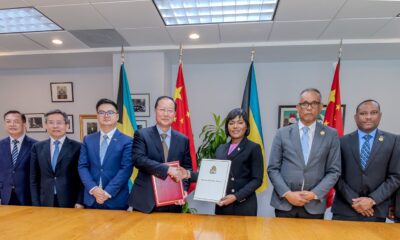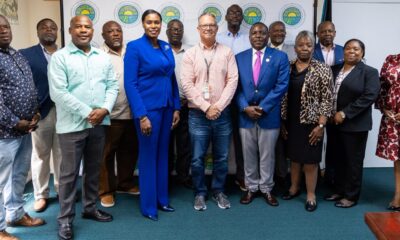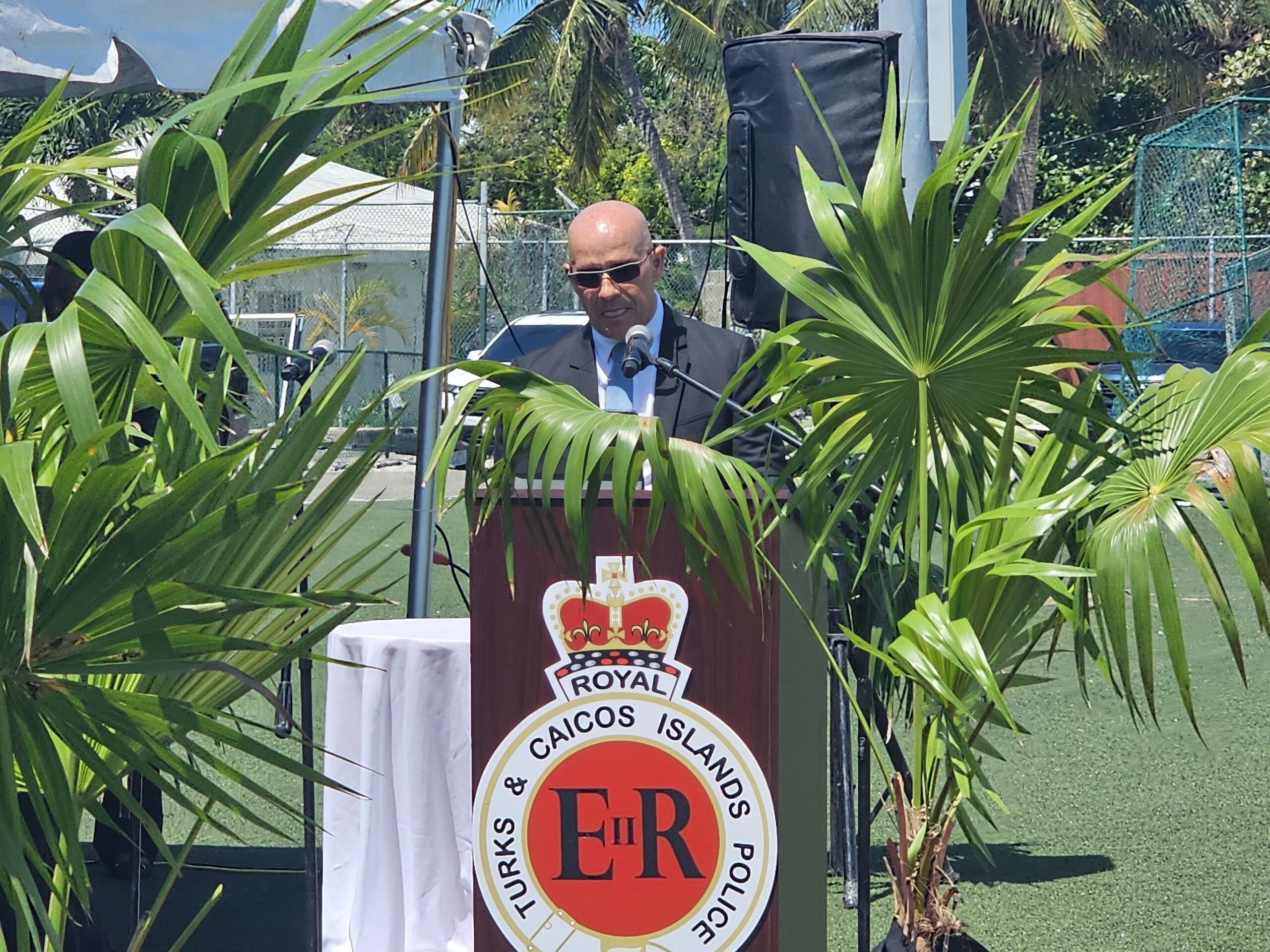Wilkie Arthur
Freelance Court Correspondent
#TurksandCaicos, April 25, 2024 – He was busted at the Howard Hamilton Providenciales International Airport on Friday, April 16, 2024.
He allegedly had in his luggage four (4) rounds of 6.5mm ammunition on his departure to his homeland in Oklahoma in the United States of America (USA).
Ryan Watson and his wife were arrested and placed into police lock up. Both were later granted police bail, and upon return to police station the Monday after the couple’s arrest, the husband alone was charged by detective Police Constable Kimberlee Markland for unlawful possession of the four rounds of ammunition.
unlawful possession of the four rounds of ammunition.
Watson was escorted to court on Tuesday, April 23rd, placed before the learned Chief Magistrate Mr. Jolyon Hatmin and remanded to His Majesty’s Prison until his sufficiency hearing on June 7, this (2024) year.
His counsel, Mr. Oliver Smith KC and his junior assistant Mrs. Kimone Tennant immediately sought bail for him in the Supreme Court which was heard the following day (Wednesday April 24) before her Ladyship Ms. Tanya Lobban-Jackson and was granted bail, without hassle in the amount or $15,000.00 cash or surety.
The Crown, in the person of senior public prosecutor Ms. Tassja Mitchell did not oppose bail.
Magnetic Media can report that once again on the afternoon of the Tuesday April 24th, after the accused RYAN TYLER WATSON, 41 was remanded by the Magistrate’s court, the U.S. Embassy issued an warning to it’s citizens and travelers to carefully check their bags when traveling to Turks and Caicos Islands (TCI) as TCI authorities are strictly enforcing firearm and ammunition laws and if found you could go to prison for 12 years.
A real question of great concern and public importance is: should the TCI courts sentence tourists to the full mandatory minimum of 12 years imprisonment for simple possession firearm and/or ammunition.
The succinct answer is: Yes!
The Court of Appeal, just last month said in its written judgment that “ALL PERSONS,” including tourist/visitors must go to prison if found guilty or pleas guilty to firearm and ammunition offences.
However, there remains the concern about how much time in prison a judge should give a visitor regardless of the existence of exceptional circumstances.
Should the judge imprison a visitor to the territory, who may have been wrongly informed, for example, the full mandatory minimum term or must a reduced prison term be imposed.
If TCI judges start to give less than the mandatory minimum to tourists/visitors, it is being strong and widely advocated by senior defense attorneys that the same must apply to local or residents of these Islands, who may also present exceptional circumstances.
Arguments about the equity in delivery of justice is what drove the question to the Court of Appeal late in 2023. The decision came this past February.
‘We cannot find ourselves sentencing tourists regardless of exceptional circumstances to lesser sentences, and when those same exceptional circumstances are found in local cases, it’s being ignored by our judges.’
Human Rights Attorney, Sheena Mair has on more than one occasion argued this point; including in firearm and ammunition bail applications. She would put the very same judges and prosecutors from the Office of the Director of Public Prosecution on the spot by reminding the judges and the prosecutors that precedent has been set.
‘You’ve just granted bail to a tourist for firearm and ammunition but now here’s a local person, same charge but because he’s a local he can’t get bail? He has to be remanded pending a trial that could take years before it’s heard?’
Mair has valiantly outlined the wrong in this and clearly stated this practice is “not fair” and it’s “not proper administration of justice in the Turks and Caicos Islands.”
Ms. Mair further complained that tourists would plea guilty to possession of firearm and ammunition and be released on bail pending sentencing but as for a local, he or she has to wait on remand at the Department of Corrections and Rehabilitation pending sentencing.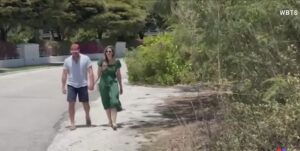
The attorney criticizes the optics of such decisions and is on record reminding the Judge that the Court of Appeal has already set out that the law applies to everyone; visitors and locals alike.
A police statement issued Wednesday April 24 informs: “Today (April 24th), Mr. Watson appeared in the Supreme Court and, following a bail application, was granted $15,000 bail with the following conditions:
1) Not travel out of TCI without the court’s permission.
2) Surrender his passport and all other travel documents to the court
3) Report to Grace Bay Police Station on Tuesdays and Thursdays between the hours of 8 am-4 pm,
4) Reside at the given address in Providenciales; any address change will be provided before the court.”
The American from Oklahoma whose story is trending in the US and has been carried by leading news networks was joined by a host of loved ones at the Courthouse.

 News1 week ago
News1 week ago
 Health1 week ago
Health1 week ago
 TCI News4 days ago
TCI News4 days ago
 Caribbean News6 days ago
Caribbean News6 days ago
 Education7 days ago
Education7 days ago
 Caribbean News1 week ago
Caribbean News1 week ago
 Caribbean News6 days ago
Caribbean News6 days ago
 News1 week ago
News1 week ago


